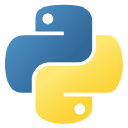On Building An AI Healthcare Product
My name is Zvi Huber, Chief Operating Officer of Brainworks. Brainworks is a provider of AI-enhanced, non-contact vital sign measurement and automated digital healthcare tools for personal, telehealth, and next-generation medical clinics and hospitals. The company’s first product, Medio Smart Health, is a national-scale service for personal health management. Through our free Medio Smart Health online solution, anyone can use their mobile phone, computer, tablet, or similar smart device to automatically measure their vital signs and track their health over time, all while answering specific CDC-recommended screening questions related to COVID-19. The latest version, Medio for School, is based on three key pillars of screening, testing, and monitoring, that will keep schools safely open and minimize halting of in-person instruction.
We are also working on a low-cost, high-sensitivity PCR-based testing service designed to detect even asymptomatic COVID-19 carriers using the very latest in next-generation genomics technologies. Brainworks and our trusted partners are building the capabilities to test for COVID-19 in a manner that is accurate, speedy, widely deployable, and cost-effective to allow greater numbers of the population to be tested more often, safely, and non-invasively. We are...











